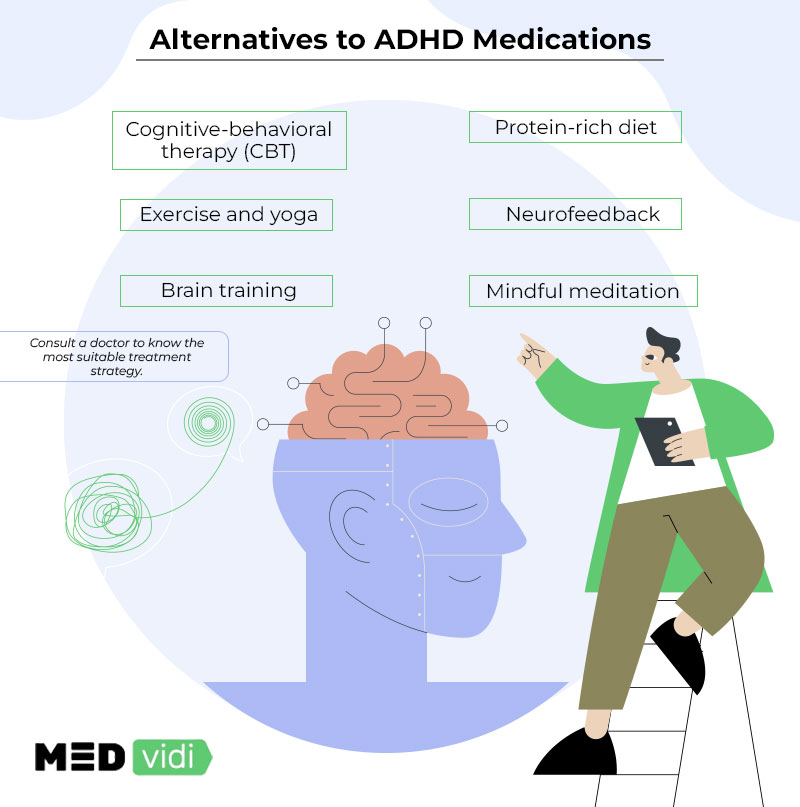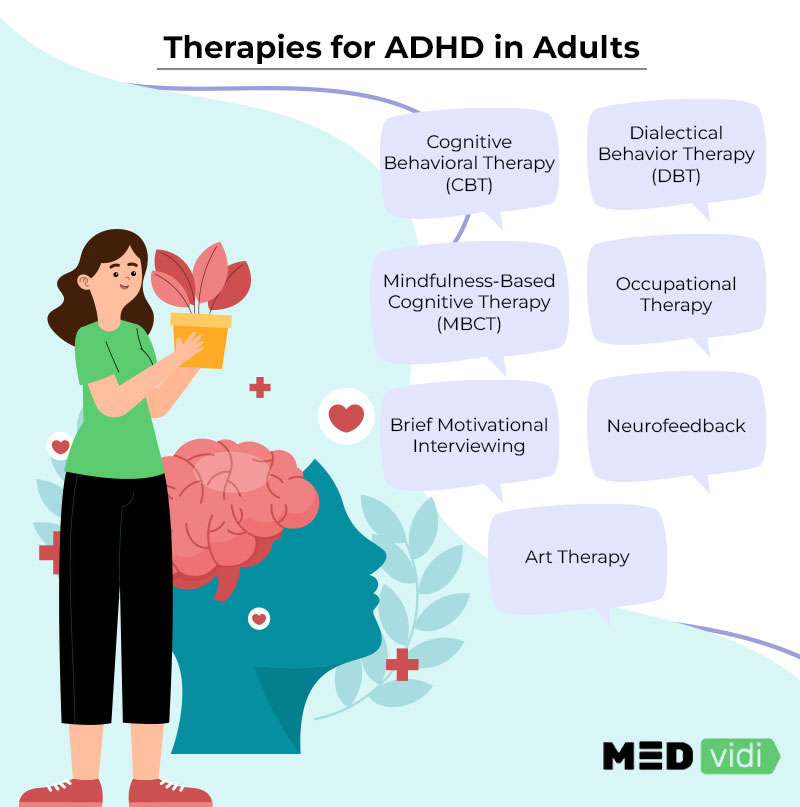Exploring Effective ADHD Therapy Alternatives for All Ages
The intricacies of Attention deficit disorder (ADHD) existing one-of-a-kind challenges across different age teams, requiring a comprehensive expedition of efficient treatment choices. A combination of behavioral therapies, medicinal interventions, and way of living adjustments has actually shown assurance in dealing with the diverse requirements of people with ADHD. The effectiveness of these approaches can differ dramatically based on personal situations, increasing crucial questions concerning tailored strategies. As we take a look at the spectrum of treatment techniques readily available, it comes to be vital to consider not only their prompt effects however likewise their long-term ramifications for people and households.
Comprehending ADHD and Its Effect
Attention-Deficit/Hyperactivity Problem (ADHD) is a neurodevelopmental condition characterized by consistent patterns of negligence, hyperactivity, and impulsivity that can considerably affect different facets of an individual's life. It normally shows up in childhood years, although signs can continue into their adult years. The core signs of ADHD can disrupt instructional efficiency, hinder social communications, and make complex occupational ventures.
Individuals with ADHD usually deal with preserving concentrate on tasks, organizing tasks, and following up on directions, which can cause academic underachievement (Depression Treatment). In social contexts, impulsivity may result in difficulties in forming and maintaining relationships, as individuals might disrupt discussions or make hasty decisions without considering effects
Additionally, ADHD can co-occur with other mental health conditions, such as anxiety and anxiety, better complicating medical diagnosis and treatment. The variability in sign presentation indicates that ADHD can influence individuals in a different way, demanding an individualized method to administration. Comprehending ADHD's complex influence is important for developing effective techniques that sustain individuals in browsing daily obstacles and attaining their capacity. Comprehensive recognition of ADHD's nature and effects prepares for exploring suitable therapy choices customized per individual's needs.
Behavioral Therapies for ADHD
Numerous behavior modifications have been developed to properly resolve the challenges connected with ADHD, concentrating on customizing details habits and promoting vital skills. Amongst one of the most recognized approaches are cognitive-behavioral therapy (CBT), parent training, and social skills training.
CBT aids individuals recognize and transform unfavorable idea patterns and habits, advertising a much more positive outlook and improved self-regulation. This therapy typically includes functional strategies for taking care of impulsivity and boosting organization. Moms and dad training programs encourage caretakers by equipping them with strategies to reinforce favorable habits and set consistent boundaries, which can be especially useful for kids with ADHD.
Social skills training is one more vital part, teaching individuals with ADHD just how to communicate effectively with peers - Depression Treatment. This approach typically includes role-playing and comments to boost interaction, participation, and dispute resolution skills
Integrating these behavioral therapies right into an extensive treatment strategy can dramatically enhance working and lifestyle for people with ADHD. Inevitably, the performance of these treatments depends on tailored approaches that take into consideration the distinct requirements of each individual, consequently promoting resilience and flexibility in every day life.
Drug Options Available
For many individuals with ADHD, medication can play a considerable role in managing signs and symptoms and enhancing overall functioning. The two primary groups of drugs prescribed for ADHD are energizers and non-stimulants.
Energizers, such as methylphenidate and amphetamine-based drugs, are one of the most commonly made use of therapies. These medicines work by increasing the levels of natural chemicals, specifically dopamine and norepinephrine, in the mind, which assists boost interest and decrease impulsivity and attention deficit disorder. They usually produce rapid results, making them a favored option for lots of individuals.

It is necessary for medical care carriers to carry out a comprehensive analysis to figure out one of the most proper medication based upon private needs, getting through depression case history, and possible negative effects. Regular follow-up and surveillance are additionally critical to ensure the efficiency of the picked therapy and to make any type of needed modifications.
Way Of Living Adjustments to Consider
Managing ADHD properly extends past medication, as way of living adjustments can considerably enhance general well-being and symptom control. Including structured regimens is important; regular timetables help people with ADHD manage their time successfully and minimize feelings of overwhelm.
Regular exercise is an additional essential part. Exercise not only aids to improve concentration however also increases mood and minimizes anxiety levels. Activities such as yoga exercise or team sporting activities can be particularly valuable, advertising both physical conditioning and social interaction.
Nourishment also plays a crucial hormonal depression duty. Depression Treatment. A balanced diet regimen rich in omega-3 fats, whole grains, and lean healthy proteins can add to boosted emphasis and cognitive feature. Limiting sugar and refined foods is recommended, as these can aggravate attention deficit disorder and impulsivity
Rest hygiene is essential for taking care of ADHD symptoms. Developing a regular rest schedule and developing a relaxing setting can improve rest high quality, causing better focus and emotional regulation.
Alternative and Holistic Approaches
Alternate and holistic strategies to ADHD treatment offer a varied series of alternatives that enhance standard methods. These methods frequently concentrate on lifestyle alterations, dietary treatments, and healing practices that intend to enhance general health while resolving ADHD signs and symptoms.

Mindfulness and behavior modifications are likewise gaining traction as all natural interventions. Practices such as yoga exercise, meditation, and cognitive-behavioral therapy can cultivate self-regulation and improve attention. These techniques support psychological resilience, which is especially beneficial for individuals with ADHD.
Natural supplements, such as ginkgo biloba and ginseng, are often checked out; nonetheless, it is critical to consult healthcare experts prior to including these right into therapy strategies. While option and holistic approaches can offer beneficial assistance, they need to ideally be made use of combined with evidence-based therapies to attain optimal outcomes for taking care of ADHD throughout all ages.
Conclusion
In summary, reliable ADHD look here treatment necessitates an extensive approach that consists of behavioral therapies, medication, lifestyle adjustments, and holistic methods. This multifaceted approach underscores the value of customized treatment in attending to the varied requirements of people with ADHD throughout all age groups.